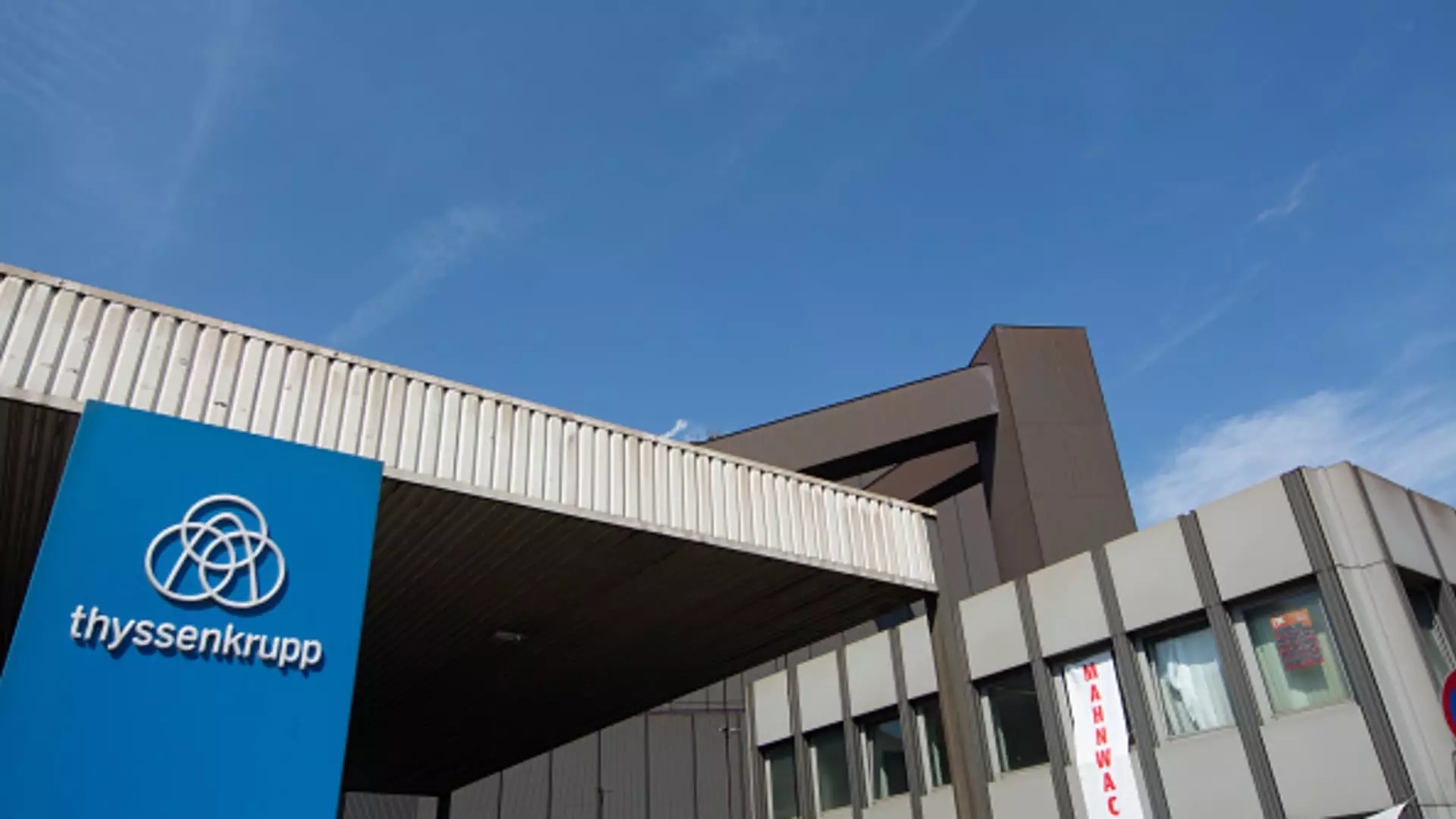On Tuesday, shares of Thyssenkrupp saw a substantial uptick of 7.9% during morning trading in London. This surge can be attributed to the company’s report revealing a narrowed net loss alongside a significant €1 billion impairment related to its struggling steel division. The company’s stock was buoyed by its better-than-expected financial performance, particularly in the fourth quarter where adjusted earnings before interest and taxes (EBIT) reached €151 million, surpassing the projected consensus of €120 million according to Reuters. This positive financial news signals a potential turning point for Thyssenkrupp, a company entrenched in various industrial sectors including steel and submarine manufacturing.
Despite posting a net loss of €1.5 billion for the fiscal year ending September 30, an improvement from the previous year’s loss of €2 billion, Thyssenkrupp is actively seeking to stabilize and enhance its financial health. The CEO, Miguel Lopez, indicated that a significant portion of last year’s loss was due to asset impairments, particularly within the Steel Europe division, which accounted for €1 billion of the total impairments. Lopez emphasized that the current fiscal year is pivotal for making crucial strategic decisions, especially in regard to Steel Europe and its Marine Systems division. This acknowledgment of challenges along with a move to enhance overall performance reflects a proactive approach towards restructuring and modernization.
As Thyssenkrupp undergoes these transformations, they are also restructuring Steel Europe into a stand-alone entity. The recent sale of a 20% stake in this unit to EP Corporate Group, which is owned by Czech billionaire Daniel Krentisky, marks a significant step in this direction. The ongoing discussions for a 50:50 joint venture further indicate Thyssenkrupp’s commitment to revitalizing its steel operations amidst a backdrop of industry difficulties. Nonetheless, the company is also considering divesting its Marine Systems business, which represents another aspect of its larger strategy to streamline operations and focus on critical areas of growth.
Thyssenkrupp’s restructuring efforts occur in a challenging economic environment for Germany, marked by declining business activity and political instability. In September, Germany’s business activity fell to a seven-month low, compounded by the collapse of the ruling coalition earlier this month. Being an export-driven economy, Germany is currently grappling with waning global demand for industrial goods, which exacerbates the challenges faced by companies like Thyssenkrupp. The firm’s management is keenly aware of these broader market trends and is threading carefully as it plans for the future while navigating through this profound economic landscape.
While the road ahead for Thyssenkrupp is fraught with hurdles, the company’s recent performance and ongoing strategic decisions hint at a potentially more prosperous future. By focusing on restructuring and tapping into opportunities presented by the green transformation, Thyssenkrupp aims to enhance its operational resilience. As Thyssenkrupp continues to adapt to both internal challenges and external market pressures, the comprehensive measures being undertaken may eventually pave the way for renewed stability and growth in the coming years.

Leave a Reply